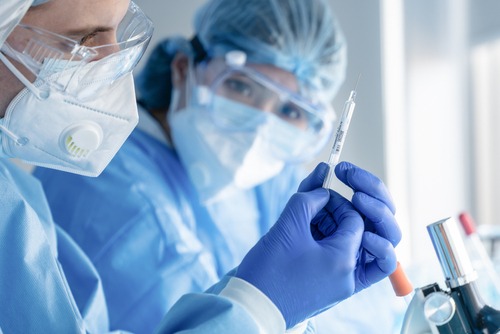
The Bipartisan Commission on Biodefense last week applauded the Biden Administration’s work on a new $65.3 billion American Pandemic Preparedness Plan for investments to combat the next biological threat, though it argues that greater funding is necessary to make sufficient plans.
The White House plan stresses the urgency of advancement in five areas: improvement and expansion of vaccines, therapeutics and diagnostics; situational awareness about infectious disease threats; stronger public health systems; core supplies such as inventory stockpiles, resilient supply chains, regulatory improvements and personal protective equipment; as well as managing the purpose of the biosafety effort and people’s commitment and accountability to it.
The Commission has stated before that in evolving U.S. capabilities to address biological threats, the current threat of pandemics could be ended by 2030. However, to do this, it also noted that more than $65 billion would be necessary. Rather, it argued for $10 billion from Congress each year for the next decade, so as to help the nation better respond to a likely increase in frequency and severity of pandemics.
“The ability to effectively prevent pandemics and biological attacks rests on a sound foundation of science and technology. National and international partners in the government, academia, industry, and other areas of the private sector must engage to take biological threats off the table,” said Commission Co-Chair Joe Lieberman, a former U.S. senator. “We need innovation – the sort of innovation that helps us solve difficult problems posed by biological threats like COVID-19. The Commission is pleased to see the Administration recognizes it will take an effort as grand as the lunar Apollo Program of the 60’s to get this done.”
To date, the Commission notes that some $16 trillion in mortality, morbidity, economic output and direct spending have been lost in the United States alone to the threat of pandemics.
The good news is that many of the technological innovations both the Biden Administration and the Commission see as necessary for countering biological threats either already exist, are in development, or have paths forward to realization.
Building on this, the Commission called on Congress to specifically allocate funding for a variety of investments, such as vaccine candidates for prototype pathogens, multi-pathogen therapeutic drugs that could be useful against multiple viruses during and ahead of outbreaks, flexible/scalable pharmaceuticals manufacturing and diagnostics usable by individuals, without need for labs or doctors.
“I’m glad to see this White House recognize what we do – that we can learn from our national experience with the lunar Apollo Program and apply it to other large-scale seemingly impossible problems, like fighting and eliminating biological threats,” Tom Ridge, former Secretary of Homeland Security and Commission co-chair, said. “Targeted, significant investments coupled with government accountability, public-private partnerships, ingenuity and perseverance will get us there. I look forward to the day when the Apollo Program for Biodefense – through the American Pandemic Preparedness Plan – is, as they say, go for launch.”
In its own plan, the Biden Administration noted that transformation of the nation’s capabilities will take time and a systematic effort built on shared visions. That makes it all the more important to start soon, and as such its plan should be viewed as an element of a larger strategy to improve pandemic readiness and biodefense. Any such work, the White House stressed, should also focus on equity and access for all.
“Like any ambitious endeavor – whether the Apollo mission or the Human Genome Project that cracked the code of human genetics – transforming our nation’s pandemic preparedness will take serious, sustained commitment and ambitious accountability,” the White House said in a statement. “And like those efforts, it is likely to yield benefits beyond the original mission – in this case advances in human health and providing tools that could overcome health inequities and ensure equitable access to innovative products.”

